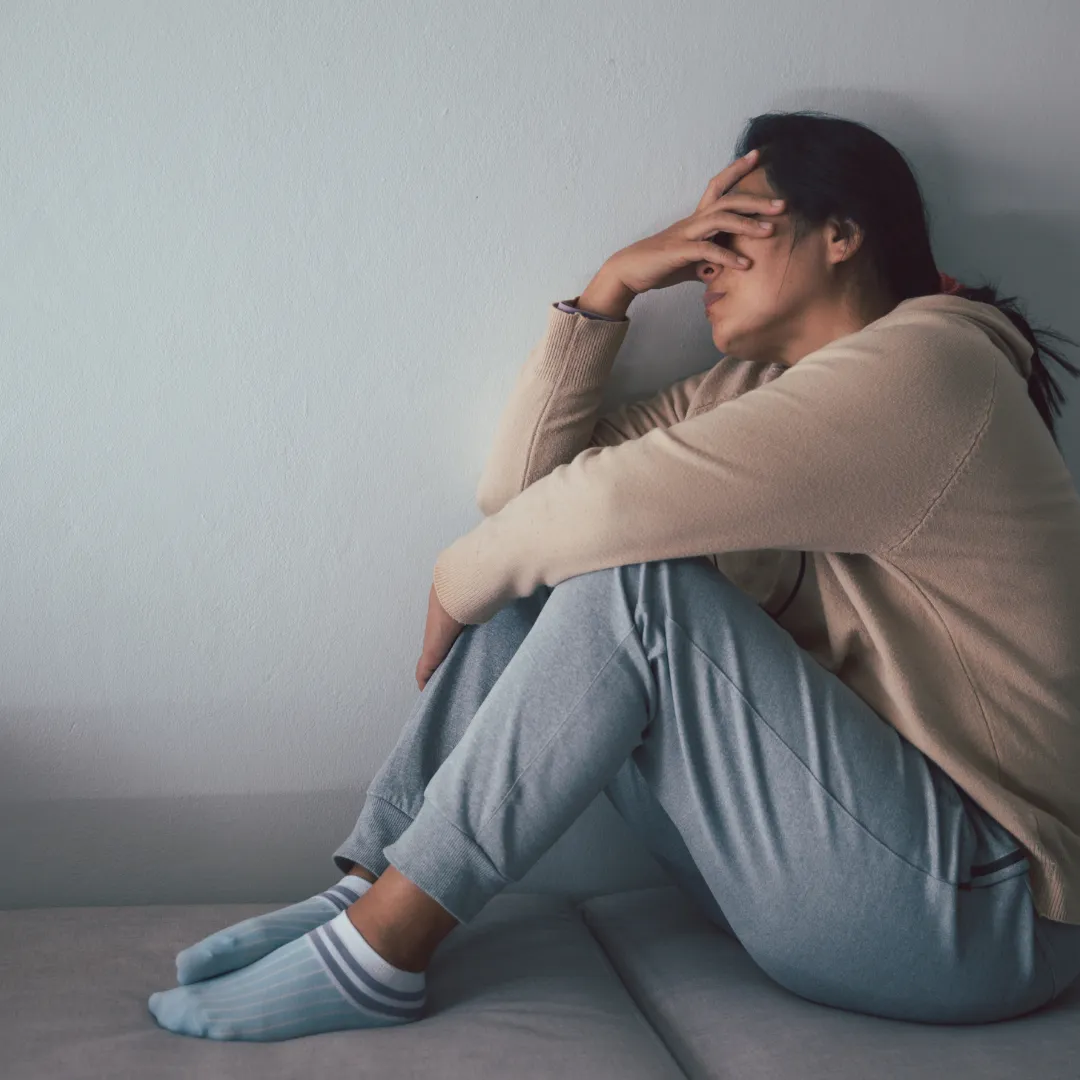Articles &
Resources
The Latest Articles & Resources

How to Overcome Panic Attack Anxiety: A Comprehensive Guide to Finding Inner Calm
How to Overcome Panic Attack Anxiety: A Comprehensive Guide to Finding Inner Calm
Do you find yourself paralysed by the overwhelming fear and physical symptoms that come with panic attacks? You're not alone. Millions of people around the world struggle with these debilitating episodes, their lives impacted by the constant worry of when the next one will strike. But fear not – there is hope. In this comprehensive guide, we will explore proven strategies and techniques to help you overcome panic attack anxiety and find inner calm.

I understand the immense toll that panic attacks can take on your mental and physical well-being. That's why along with using the proven Havening Technique®️, I’m committed to providing you with the most effective tools and resources to regain control of your life. Whether you're seeking holistic remedies, professional therapy options, or self-help techniques, I’ve got you covered.
Throughout this guide, I’ll delve into the science behind panic attacks, revealing their root causes and triggers. You'll learn how to recognise and manage the symptoms, empowering you with the knowledge to overcome them. Discover relaxation techniques, breathing exercises, and mindfulness practices that can help soothe your anxious mind and body.
Don't let panic attacks dictate your life any longer. Take the first step towards finding inner calm and living free from anxiety. Let's embark on this journey together.
Understanding Panic Attacks and Anxiety
Panic attacks are intense episodes of fear and anxiety that can be accompanied by physical symptoms such as rapid heartbeat, shortness of breath, and sweating. They can occur suddenly and without warning, leaving individuals feeling overwhelmed and out of control. Understanding panic attacks is the first step towards overcoming them.
Panic attacks are often a manifestation of underlying anxiety disorders. Anxiety is a natural response to stress, but when it becomes excessive and interferes with daily life, it can lead to panic attacks. It's important to recognize that panic attacks are not a sign of weakness or character flaw. They are a psychological and physiological response to stressors.
Symptoms of Panic Attack Anxiety

Recognising the symptoms of panic attacks can help you better understand what you're experiencing and seek appropriate help. Common symptoms include a racing heart, chest pain or discomfort, shortness of breath, dizziness or lightheadedness, trembling or shaking, and a sense of impending doom or fear of losing control. These physical symptoms are often accompanied by intense feelings of anxiety and fear.
It's important to note that panic attack symptoms can vary from person to person. Some individuals may experience a combination of physical and psychological symptoms, while others may only experience a few. Regardless of the specific symptoms, panic attacks can be incredibly distressing and disruptive to daily life.
Causes of Panic Attacks and Anxiety
Panic attacks and anxiety disorders can have various causes, and it's often a combination of factors that contribute to their development. Some common causes include genetic predisposition, brain chemistry imbalances, traumatic life events, chronic stress, and certain medical conditions. Understanding the root causes of panic attacks can help you address them more effectively.
Genetic factors play a role in anxiety disorders, as they tend to run in families. Imbalances in brain chemistry, particularly involving neurotransmitters like serotonin and norepinephrine, can also contribute to the development of panic attacks. Traumatic experiences, such as physical or emotional abuse, can trigger panic attacks later in life. Additionally, chronic stress and certain medical conditions, such as heart disease or thyroid disorders, can increase the risk of experiencing panic attacks.
The Impact of Panic Attacks and Anxiety on Daily Life
Panic attacks and anxiety can have a profound impact on various aspects of daily life.

They can disrupt relationships, interfere with work or school performance, and limit social activities. The constant fear of having a panic attack can lead to avoidance behaviour, where individuals avoid situations or places that they associate with previous attacks. This can further isolate and limit their lives.
The emotional toll of panic attacks and anxiety cannot be underestimated. The fear and worry associated with these episodes can be overwhelming, leading to feelings of helplessness and hopelessness. It's crucial to recognize the impact that panic attacks and anxiety have on your life and seek support to regain control and find inner calm.
Coping Mechanisms for Panic Attacks and Anxiety
While it may seem challenging, there are effective coping mechanisms that can help you manage panic attacks and anxiety. One approach is to practise relaxation techniques, such as deep breathing exercises, progressive muscle relaxation, or guided imagery. These techniques help activate the body's relaxation response and reduce the physical symptoms associated with panic attacks.
Another helpful coping mechanism is mindfulness meditation. Mindfulness involves focusing on the present moment without judgement. It can help you become more aware of your thoughts and feelings, allowing you to observe them without becoming overwhelmed. Regular mindfulness practice can enhance your ability to stay calm during panic attacks and reduce anxiety overall.
In addition to these techniques, it's important to develop a self-care routine that supports your mental and physical well-being. This may include engaging in regular exercise, getting enough sleep, eating a balanced diet, and engaging in activities that bring you joy and relaxation. Taking care of yourself is crucial in managing panic attacks and anxiety.
Seeking Professional Help for Panic Attacks and Anxiety

While self-help techniques can be valuable, seeking professional help is often necessary for effectively managing panic attacks and anxiety. Mental health professionals, such as therapists or counsellors, can provide guidance, support, and evidence-based treatments to help you overcome panic attacks.
Havening is a recommended therapy for panic attacks and anxiety disorders. It focuses on identifying and challenging negative thought patterns and behaviours that contribute to panic attacks. Havening: a newer alternative therapy technique that incorporates distraction, touch, and eye movements. Its goal is to reduce anxiety and distress associated with negative memories.
Self-Care Practices for Managing Panic Attacks and Anxiety
Self-care is an essential aspect of managing panic attacks and anxiety. It involves taking intentional steps to prioritise your mental and physical well-being. Here are some self-care practices that can help you find inner calm:
Establish a routine: Creating a daily routine can provide structure and stability, reducing feelings of uncertainty and anxiety.
Practice relaxation techniques: Engage in deep breathing exercises, progressive muscle relaxation, or guided imagery to promote relaxation and reduce panic attack symptoms.
Engage in regular exercise: Physical activity releases endorphins, which are natural mood boosters. Regular exercise can help reduce anxiety and improve overall well-being.
Get enough sleep: Lack of sleep can exacerbate anxiety symptoms. Establish a consistent sleep schedule and practise good sleep hygiene to ensure adequate rest.
Limit caffeine and alcohol: These substances can trigger or worsen anxiety symptoms. Opt for healthier alternatives like herbal tea or water.
Engage in activities you enjoy: Hobbies and activities that bring you joy and relaxation can distract from anxious thoughts and provide a sense of fulfilment.
Natural Remedies for Panic Attacks and Anxiety

In addition to self-care practices, there are natural remedies that can complement your efforts in managing panic attacks and anxiety. While these remedies may not work for everyone, some individuals find them helpful. It's important to consult with a healthcare professional before trying any natural remedies, especially if you're taking medication or have underlying medical conditions.
Herbal supplements: Certain herbs, such as chamomile, lavender, and passionflower, have calming properties and can help reduce anxiety symptoms. However, it's crucial to choose high-quality supplements and follow recommended dosages.
Essential oils: Aromatherapy using essential oils like lavender, bergamot, or ylang-ylang can promote relaxation and reduce anxiety. Diffuse the oils or use them in a diluted form for massages or baths.
Dietary changes: Some individuals find that certain dietary changes, such as reducing sugar and processed foods, and increasing intake of omega-3 fatty acids, can help reduce anxiety symptoms.
Lifestyle Changes to Reduce Panic Attacks and Anxiety
Making certain lifestyle changes can significantly reduce the frequency and severity of panic attacks and anxiety. While these changes may require effort and dedication, the benefits are worth it. Here are some lifestyle changes to consider:
Stress management: Effective stress management techniques, such as regular exercise, mindfulness meditation, and engaging in activities you enjoy, can help reduce anxiety and prevent panic attacks.
Limiting triggers: Identify and avoid triggers that contribute to panic attacks. It may involve setting boundaries, reducing exposure to stressful situations, or seeking support to address underlying issues.
Building a support network: Surround yourself with supportive and understanding individuals who can provide emotional support and encouragement during challenging times.
Educating yourself: Learn as much as you can about panic attacks and anxiety. Understanding the science behind these conditions can help you develop strategies to manage them effectively.
Conclusion: Finding Inner Calm and Living a Fulfilling Life

Panic attacks and anxiety can be overwhelming, but they don't have to control your life. By understanding the causes and symptoms of panic attacks, practising coping mechanisms, seeking professional help when needed, and incorporating self-care practices and lifestyle changes, you can find inner calm and live a fulfilling life.
Remember, everyone's journey is unique, and it may take time to find the strategies that work best for you. Be patient and kind to yourself throughout this process. With determination and the support of a strong network, you can overcome panic attack anxiety and create a life filled with peace and joy.
I’m here to support you every step of the way. I believe in your ability to overcome panic attacks and anxiety. Together, let's start this journey towards finding inner calm and reclaiming your life.

ⓒ2024 by Finding Your Haven
Finding Your Haven is a trading name of Aardvark Equestrian Ltd. Tydd. St Giles. PE135NH
Sue Hill is a Certified Havening Techniques Practitioner, Certified Practioner of NLP and a Certified Practitioner of Hypnosis.
Havening Techniques.is a registered trade mark of Ronald Ruden,15 East 91st Street, , New York. www.havening.org

